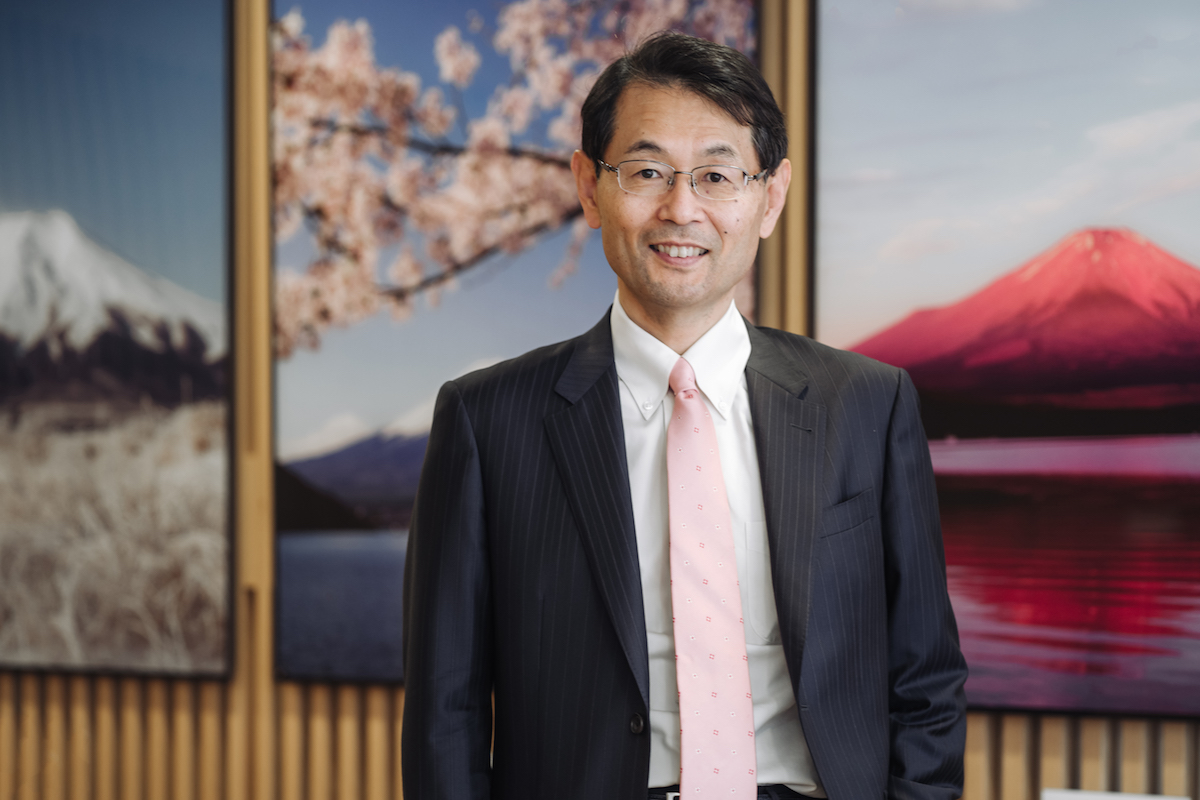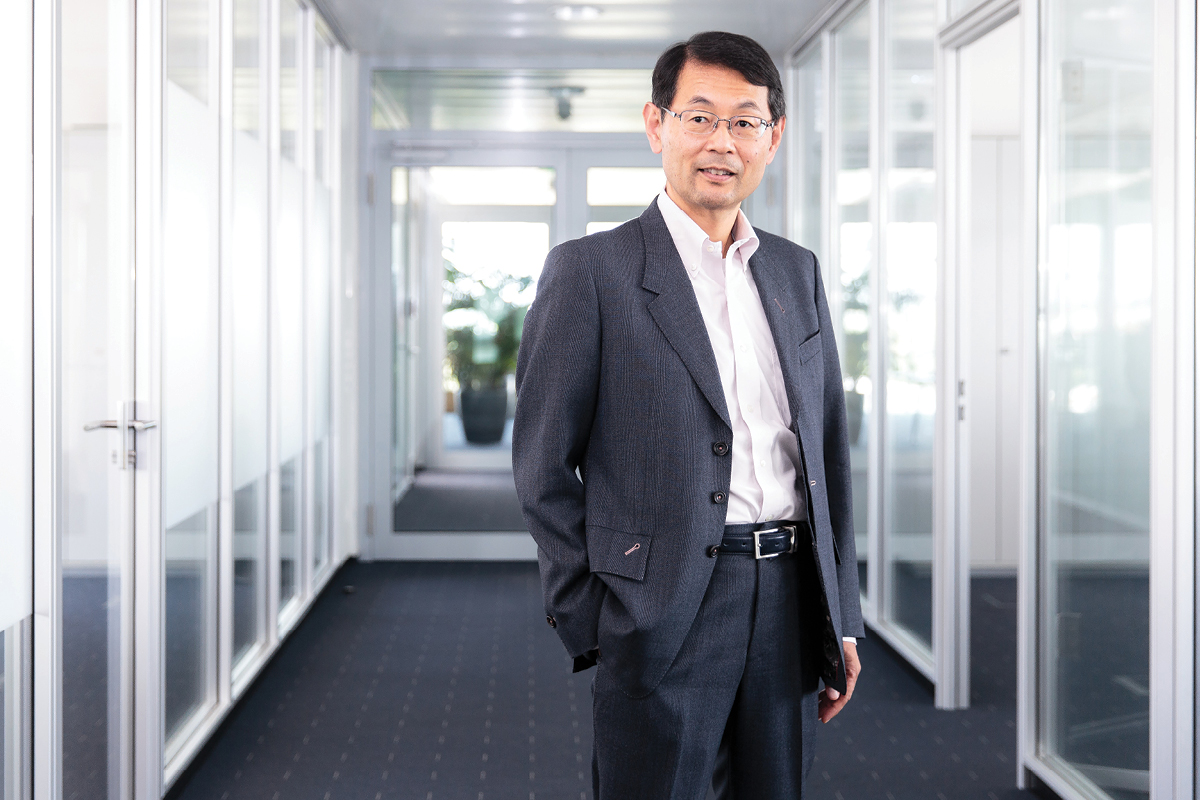Everywhere you look, automated machine manufacturer FANUC plans for the long-term. “We’re really thinking about a much longer future,” says FANUC Europe President and CEO, Shinichi Tanzawa. “We think more than 100 years into the future.” But Shinichi doesn’t need to look anywhere near that far ahead to predict the growing use of collaborative robots, a sector that is expected to grow to around 10 times its size between 2015 and 2020.
Closer interactions between man and machine
In the past, safety and security have been the main inhibitors to growth in the sector. Now that these issues are finally being addressed, Shinichi looks to making the most out of the ever-more intimate interactions between man and machine.
“This is the first time that the robots are coming out of their cages and we need to find out how we can work with them,” Shinichi says. “That’s something we constantly think about and we’re trying to come up with good solutions. It’s an interesting problem.

If we can solve it, it’s something that can be used all over the world, not just in Europe.” In Asia and the Americas, especially with its main product offering, Computer Numerical Control (CNC) machines, FANUC is well-established, boasting more than a 50% market share.
However, Europe is a different story. “In the CNC space, we still have something like a 20% market share, which is not really dominant,” says Shinichi. “Likewise with robots, where we have around a 30% market share but have some major competitors.”
We think more than 100 years into the future.
Shinichi is set on rectifying this situation but wants to avoid the route of simply gobbling up the competition. “We do not intend to acquire big companies just to grow our numbers. That’s not FANUC’s style, and that’s not going to be FANUC Europe’s style,” he stresses. Instead, Shinichi is aiming for organic growth, something he hopes to achieve by making FANUC’s largely manufacturing customer base happy, satisfied and more efficient.
Keeping transparent and communicating effectively
“I try to make our organisation as open as possible, and we try to pick up on bad news quickly, and communicate it effectively and in a logical manner to our main supplier and not just to FANUC headquarters. That way, we can solve those problems quickly instead of hiding them, which will only add to the frustrations at the customer end.”
Shinichi says FANUC’s ‘Service First’ global policy is aimed at giving satisfaction to the customer by providing them products that are reliable first and foremost.
“Whereas other companies try to regain margins from service after selling their product at a low price, FANUC’s approach is different. Of course, we will continue to earn money from our service, but we want to earn money from our products too,” says Shinichi. “In some cases, we have to repair machines that are more than 30 years old, and we’re more than happy to do that. That creates the difference from our competitors.”
In line with Industry 4.0, FANUC introduced its own version of the Internet of Things (IoT) to Europe last September. It’s called the FANUC Intelligent Edge Link and Drive, or FIELD, system. As a counterpoint to dominant IoT platform providers like SAP and IBM, Shinichi says FANUC’s FIELD system can make better predictions about machine behaviour or potential failures.
“It means that devices that are close to each other can network and come up with solutions from within the factory,” he says. “The response will be given from the system in sub-second speed and is much faster than going to the cloud.”
FANUC has to keep raising its technological leadership to remain relevant, particularly in an industry as detail-focused as machine manufacturing. To achieve this, it needs to ensure it is constantly upskilling and that its workers are in sustainable, long-term employment. Much like the way it builds long-term relationships with its customers, FANUC must do the same with its employees.
“We have quite a few people in the company who have been here for more 20 years,” remarks Shinichi.



